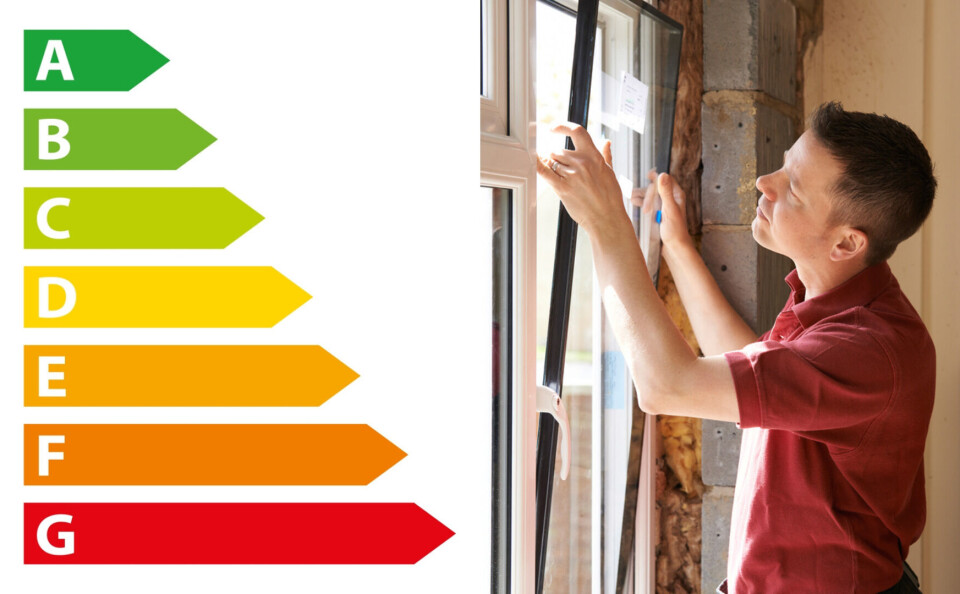-
France to reform DPE 2026: better ratings for electric-heated properties
New co-efficient will be used to calculate a property’s category
-
French holiday rental property energy rating requirements to change
Other changes including some related to tax also come into force
-
France plans crackdown on fraud around obligatory energy ratings for homes
All homes being sold or let need an up-to-date DPE
Rent prices in France frozen for least energy efficient properties
It is part of a series of measures being introduced to encourage landlords to improve their properties’ energy efficiency through renovations

Landlords in France can no longer increase rent on properties with poor energy efficiency ratings, thanks to a new law entering into force today (August 24).
It is part of a “climate and resilience law” and is one of a number of new rules being gradually introduced to improve properties’ energy efficiency.
The measure concerns properties classified as F or G on the Diagnostic de performance énergétique (DPE).
The DPE uses a graded rating scheme – from A to G – to indicate how energy-efficient a property is, with A the best and G the worst.
It takes into account the energy consumption and greenhouse gas emission rates of a home, corresponding to the property’s size.
It means that as of now, rent prices are frozen for any tenant living in an F- or G-classed property.
There are around 5.2 million properties in France with an F or G DPE rating
This cap will be removed if the property is upgraded and reclassified with a higher DPE rating.
This rule will not be applied to properties that are rented out as short-term holiday lets.
Read more: Energy certificate rules could see house prices fall in France
Total rental ban for worst properties from January
From January 1, 2023, it will be illegal to rent out the absolute least energy efficient properties in France – those that consume more than 450kWh per square metre and per year.
There are around 140,000 properties that fall into this category.
This will then be extended to include the rest of the G-rated properties from January 2025 and then extended further to all F-rated properties from 2028 and E-rated properties from 2034.
Energy audit obligation pushed back to April
Another rule set to come into effect is the obligation for homeowners selling low-energy performing properties to get an energy audit (audit énergétique).
This measure was supposed to come into force on September 1 for owners of properties classed as F or G but has been pushed back to until April 1, 2023.
Read more: Extra energy audit to protect property buyers in France is delayed
The introduction of this rule has already been delayed several times due to a lack of preparedness on behalf of the auditors.
An energy audit gives a more complete breakdown of a property’s energy efficiency and also contains recommendations on how to improve the property. The DPE is similar but is a less thorough report.
The obligation for people selling properties classed E on the DPE to get an energy audit is set to come into effect from January 1, 2025. This will be extended to D-classed properties on January 1, 2034.
This could create a black market
The new rules surrounding properties with low energy efficiency ratings are designed to encourage landlords and syndics to renovate properties.
However, this is not always easy when it comes to renovating flats, with a consensus from all the buildings’ landlords usually required before certain works can be carried out.
Additionally, the cost of the work can be expensive. The renovations are generally subsidised in part by government grants but they are often not enough to cover the full cost of the work, meaning landlords put off making changes.
Mickaël Aubry, director of Aubry Gestion, which is the syndicat for some fifty buildings in the Île-de-France region, said the new laws could push landlords to go outside the law to rent out their properties.
“There is a risk of ending up with a sort of black market with landlords who will rent directly to tenants because they don't have the means to do otherwise and because people, whatever happens, will need to be housed,” he told Franceinfo.
Related articles
Home energy rating problems and three other French property updates
Explained: How to apply for a renovation grant for your French home
Home heating system uses ‘sunshine’ paint invented in France
























